I was pleased to be asked to host a session of the Creative Play Working Group of the Screenwriting Research Network (SRN), chaired by Professor Chris Neilan of Edinburgh Napier University.
I had the chance to introduce the attendees to some wonderfully emotional monologues written by a few highly accomplished female television writers, from Susan Harris (on SOAP) to Linda Bloodworth Thomason (on Designing Women) to Maxine Alderton, who wrote a great monologue for the Jodie Whitaker Doctor in her episode “The Haunting of Villa Diadoti”. (Doing a bit of history by showing monologues from TV shows from the 1970s and 80s is one of my goals in our MFA – along with celebrating female screenwriters).
Then I introduced an exercise in writing monologues that involves Thornton Wilder’s Our Town as an inspiration. A few of the attendees shared what they wrote so we could all learn more about how the specificity we bring from our own lives makes our work more universal.
Thanks to Leslie Kreiner for inviting me to do a presentation on Monologues to a conference last year, which created the seed of this exercise. Thanks to Chris for the invitation to share it – and to all the attendees for… attending. Special thanks to those who shared what they wrote to help others see if this is an exercise they would like to incorporate into their teaching.
![Rosanne presents “Creative Play #8: Emotional Monologues Written By A Few Accomplished Female Television Writers” – Screenwriting Research Network [Video]](https://rosannewelch.com/wp-content/uploads/2026/01/rn-conversations-creative-play-8-1-1200x675.png)
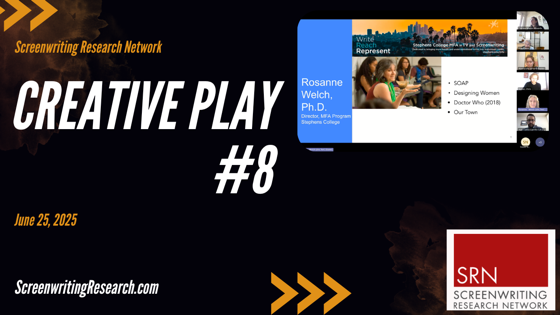
![When Women Write What They Say, They Say So Much More: Powerful Actress-writer-producers Past, Present & Future with Dr. Rosanne Welch, SRN 2025, Adelaide, Australia [Video]](https://rosannewelch.com/wp-content/uploads/2025/10/SRN2025-Adelaide-1-1.jpg)
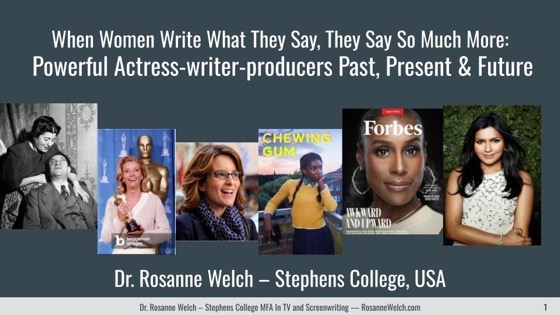
![Dr. Rosanne Welch Interview, Screenwriting Research Network Conversations [Video]](https://rosannewelch.com/wp-content/uploads/2025/03/rmw-srn-interview-1-1200x632.png)
![Dr. Rosanne Welch Interview, Screenwriting Research Network Conversations [Video]](https://rosannewelch.com/wp-content/uploads/2025/03/rmw-srn-interview.png)
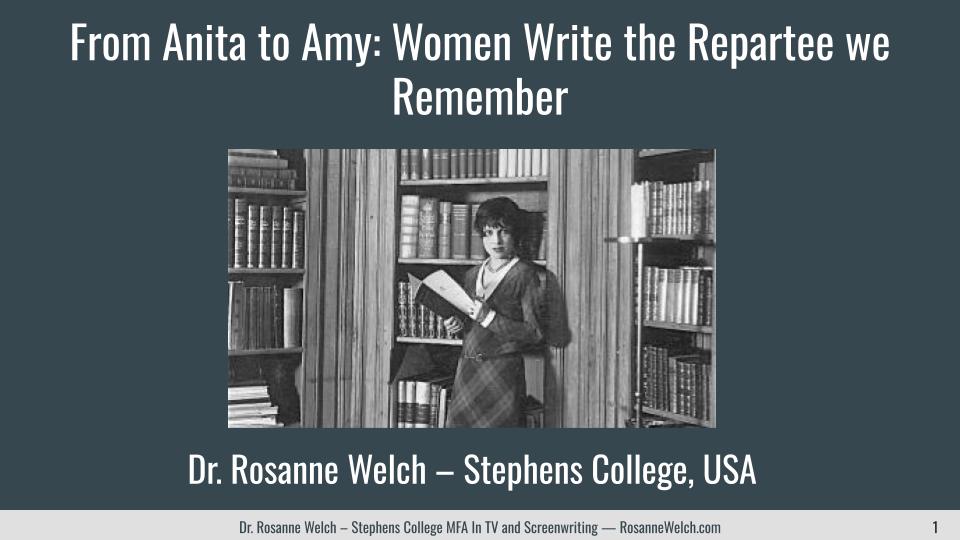
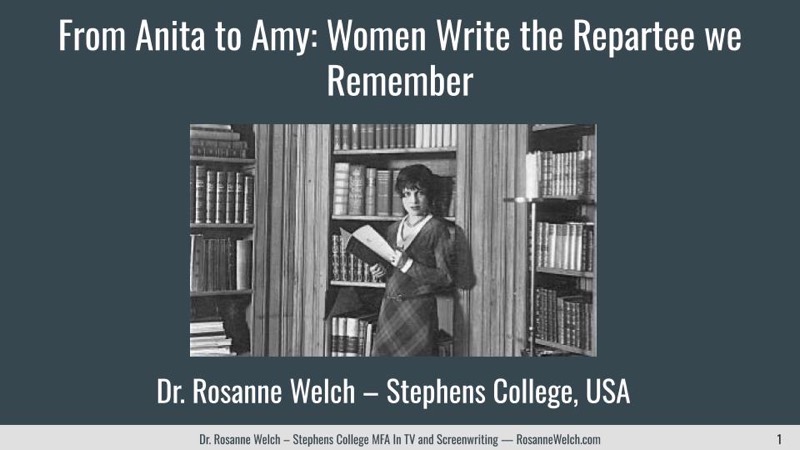
![Flipping Your Classroom with Dr. Rosanne Welch – Screenwriting Research Network Working Group on Comparative Screenwriting [Video]](https://rosannewelch.com/wp-content/uploads/2024/04/srn-flipped-2024-1.jpg)
![Flipping Your Classroom with Dr. Rosanne Welch - Screenwriting Research Network Working Group on Comparative Screenwriting [Video]](https://rosannewelch.com/wp-content/uploads/2024/04/srn-flipped-2024.jpg)
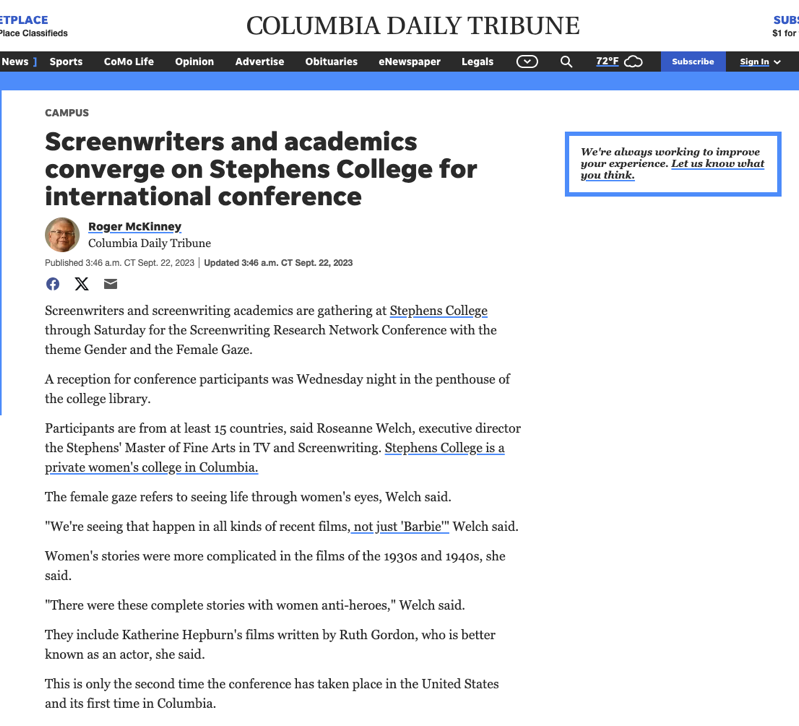
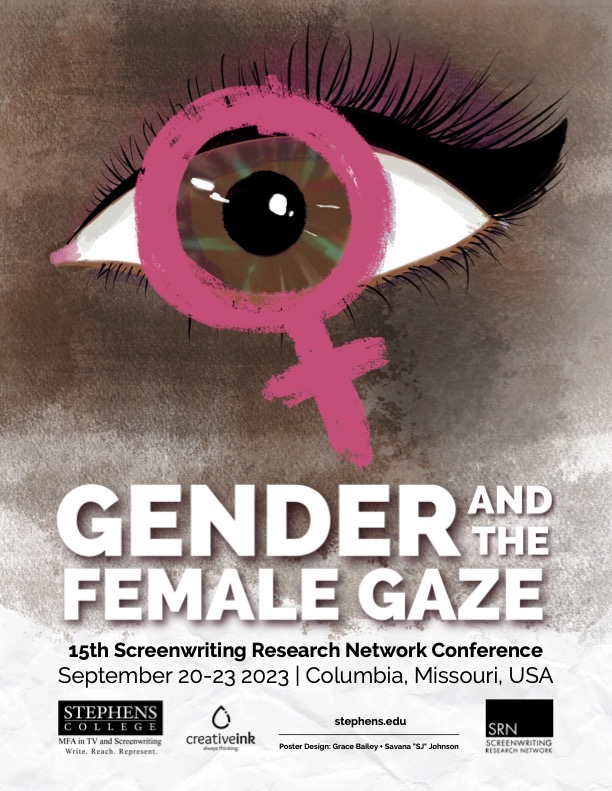
![Dr. Rosanne Welch Interview - She Served Too, KPON FM, Columbia, MIssouri [Audio]](https://rosannewelch.com/wp-content/uploads/2023/10/rmw-kopn-interview.gif) While I was on the Stephens College campus a couple of weeks ago for the
While I was on the Stephens College campus a couple of weeks ago for the ![15 Conclusion From Jeanne to Suso to Julie to Spike: How Jeanne Macpherson’s Manual on Screenwriting Influenced Italian Realism which Influenced Black Independent Film in the U.S. [Video]](https://rosannewelch.com/wp-content/uploads/2023/01/rmw-srn-vienna-2022-15.jpg)
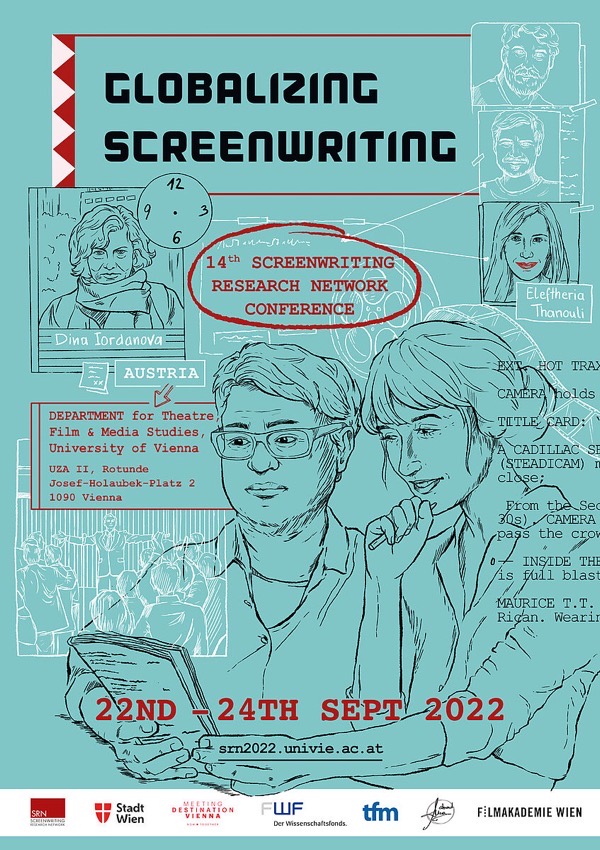

![14 Julie Dash and Spike Lee From Jeanne to Suso to Julie to Spike: How Jeanne Macpherson’s Manual on Screenwriting Influenced Italian Realism which Influenced Black Independent Film in the U.S. [Video]](https://rosannewelch.com/wp-content/uploads/2023/01/rmw-srn-vienna-2022-14.jpg)